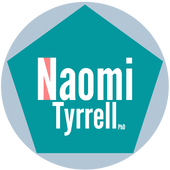
Does the word networking make you cringe and wish you could hide in a corner or jump for joy at the opportunity to meet new people? Or maybe your reaction is somewhere in between!
Networking isn’t complicated, it’s simply about having conversations with people. If you’re not sure where to start, you can start off with people you know already. Once you start talking to people about who you are and what you do it becomes easier to have those conversations with more people! And so, your network begins to grow.
How to build your alt-ac network
A good place to start networking and finding out about what people with PhDs are doing beyond academia is on social media.
There are several supportive Facebook Groups: AltAc Careers UK, Academics Say Goodbye, The Professor is Out, Researchers Who Consult. Search through the posts in the Groups and you will quickly gain a lot of insight into what people are doing. Create your own post asking for advice – you’ll get a lot of support!
Twitter is also a good place for networking and seeking support. Some hashtags that are helpful are: #altac, #PhDChat, #LeavingAcademia, #AcademicTwitter, #postdoc, #adjunct.
And then of course, there’s LinkedIn!
LinkedIn is your alt-ac best friend
LinkedIn is your best friend when you are making your transition out of academia. Write a creative profile that sums up who you are and what you offer – make it exciting, be enthusiastic! Rather than ‘PhD Researcher’ as your job title, think about what skills you have that you are promoting on your LinkedIn profile – don’t just describe you title, show what skills and experience you have.
‘A profile should be a story that encapsulates your why, combined with an argument for why you are the best person to do a job.’ (Chris Cornthwaite, Roostervane.com)
Take a look at how other people write their profiles – which ones stand out to you? Who would you hire if you were looking for a new employee? Then write yours in a similar style. It’s helpful to show your ‘value-added’ – it’s not just about qualifications, it’s about what you can do and about who you are.
You can promote yourself, build your network, find out about jobs and careers, research employer and roles…and something that is a bit like a whole new world of discovery is when people come to you with offer of work! Yes, it’s true, that can actually happen! LinkedIn is full of recruiters. If you use LinkedIn often for networking and job searches you will become familiar with the names of recruiters and recruitment companies in the sectors you are interested in moving into.
If you have a great LinkedIn profile, and post interesting/relevant material, then you will get noticed by the people who you want to notice you! And when you are looking for your first alt-ac career move, these are, of course, the people who are looking for the ideal candidate to fill their vacancy! Be visible, promote your skills and recruiters can find you!
Go to where the people are
If you’re not keen on juggling lots of different social media interactions, then do a bit of research (you’re good at that!) and find out where people who have a PhD in your discipline/area of research hang-out. More importantly, find out where the ones who have escaped academia hang out! Choose one (or two) social media platforms to start/build your network with alt-ac people and be active.
Make sure you choose a social media platform that you actually like using so that it doesn’t feel like a chore! Learn about your chosen platform(s) – when is the best time to post/comment to increase views, what hashtags should you use to get noticed, what style do people write in, etc.
Make sure that you are professional and supportive of others – you are trying to build a network that will help your career, not create controversy (unless you feel that will be particularly helpful – sometimes it is…!). Comment on other people’s posts, as well as posting, so it’s not all about you but you are building a supportive network. You can connect with people and ask them for advice – most people who have made the transition out of academia are happy to help others and pass on their tips!

